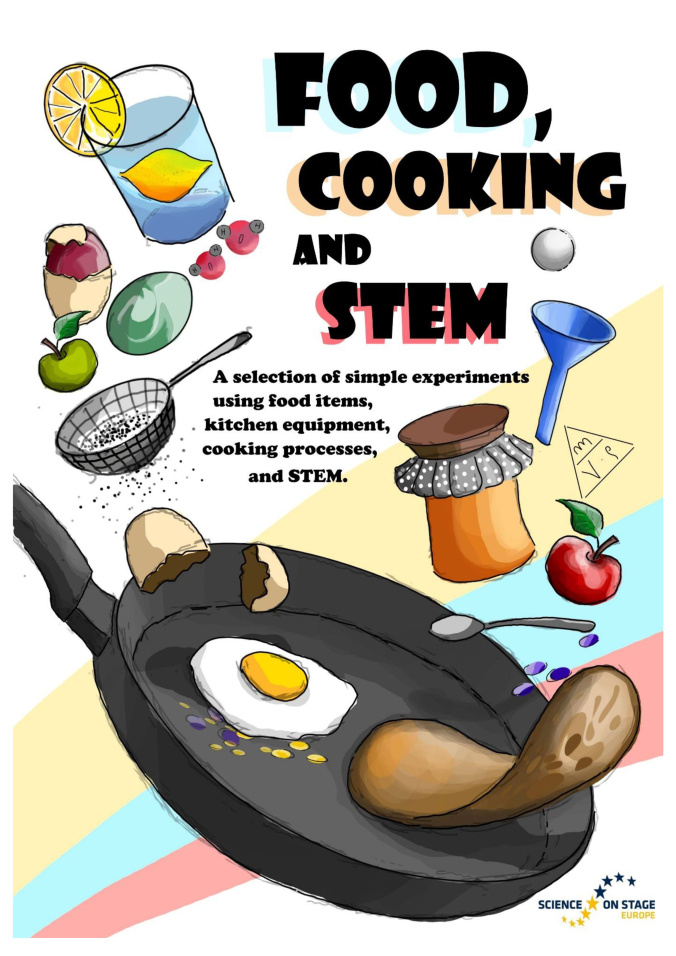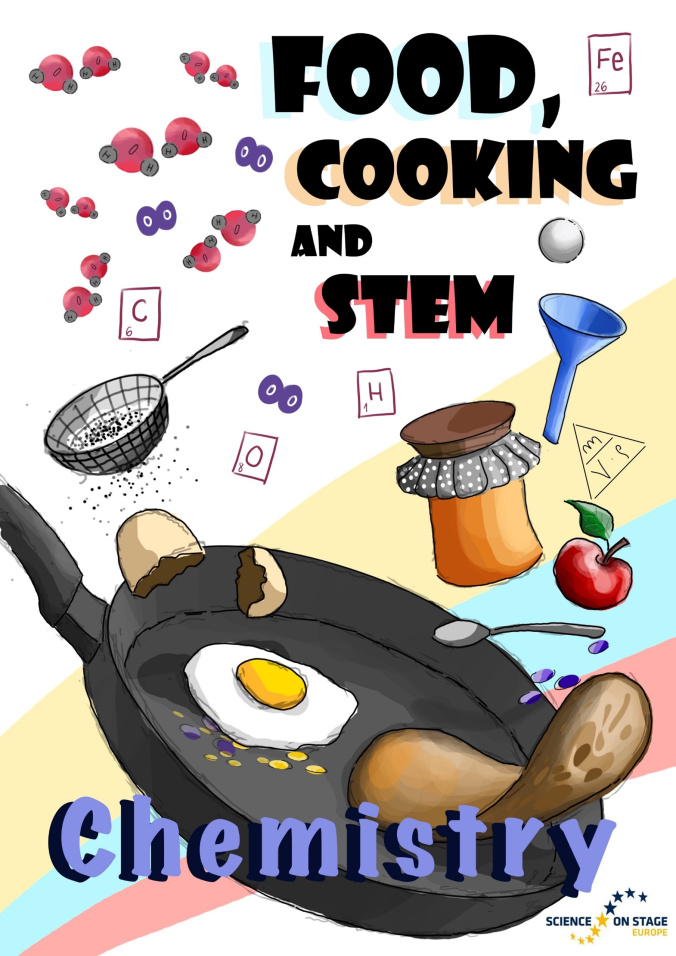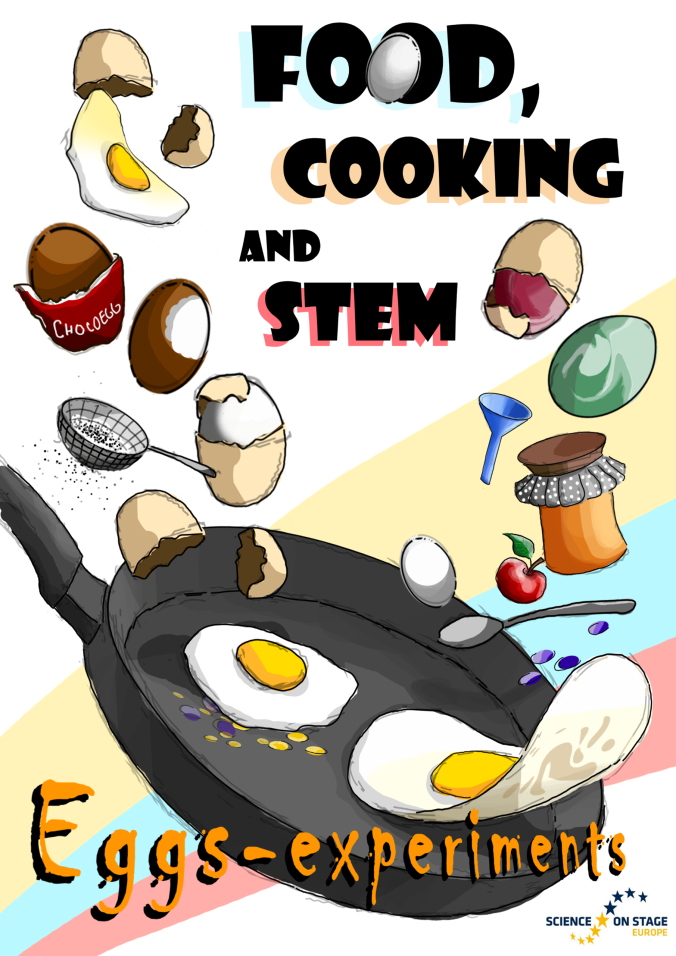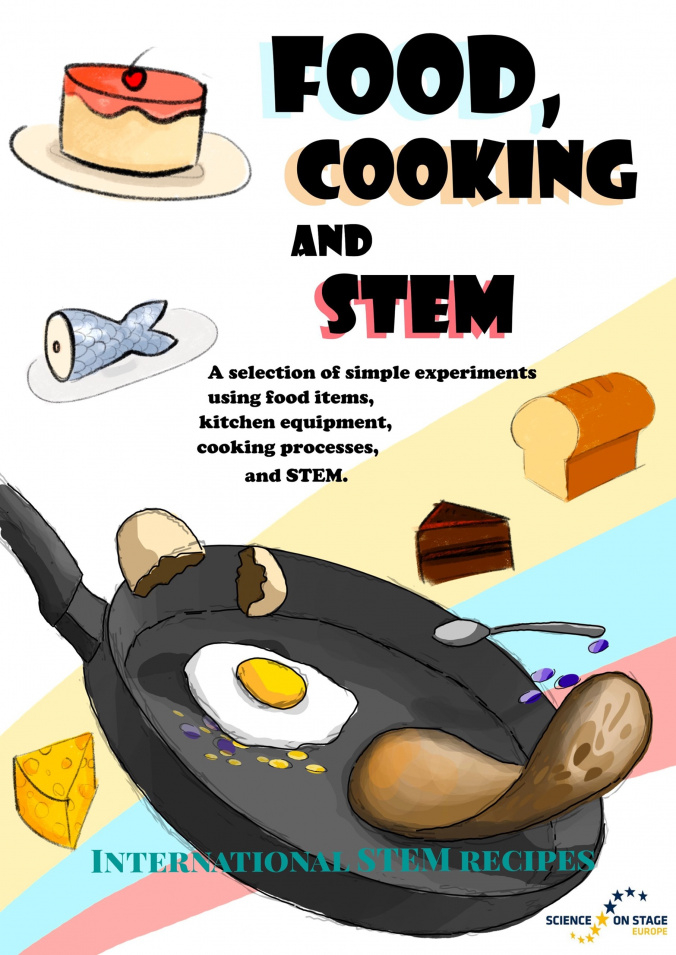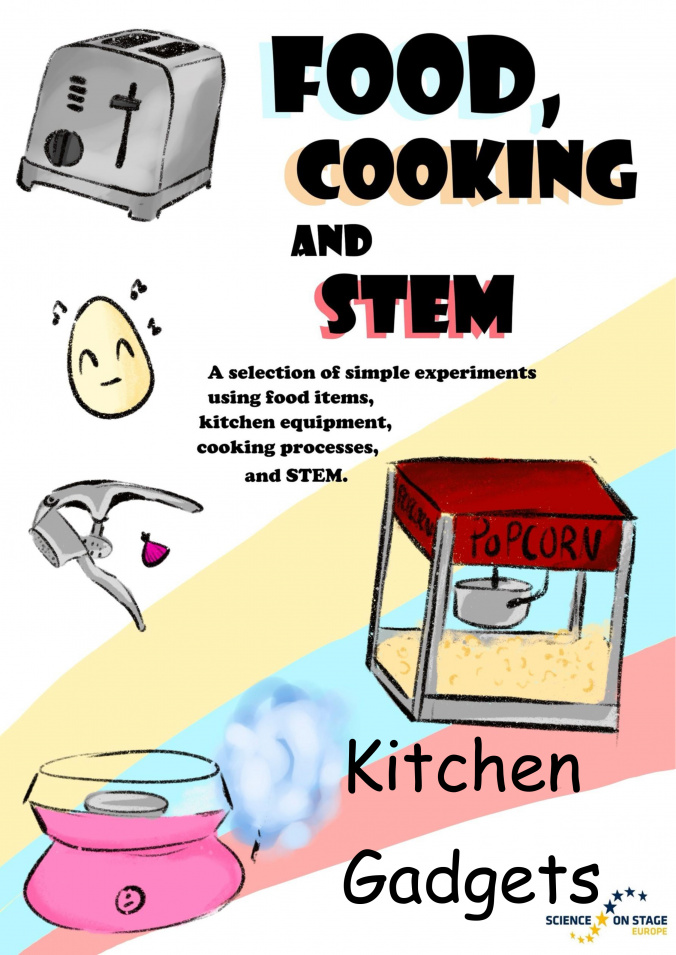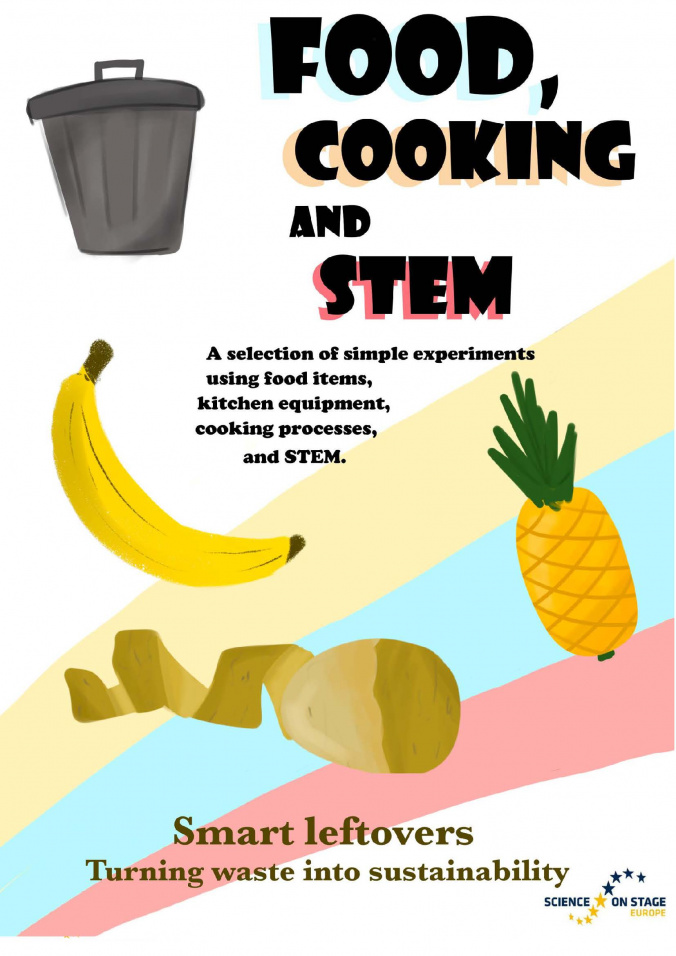Food, Cooking and STEM

Overview
There is a lot of science in cooking, baking and everything around the kitchen, from looking at the chemistry of making pudding to the characteristics of eggs. This teaching material shows how you can use household items and easy experiments to explain various scientific concepts to different age groups.
What you find in the material
The material is divided into several sections and each contains some material suitable to all stages of school education and STEM subjects.
Section 1: Experiments with Food Items
The first section covers some simple experiments that use food items. Many of these are familiar experiments, which ordinarily would be demonstrated with science laboratory apparatus. However, we show how they can be performed with many items found in the kitchen and supermarket.
Section 2: Chemistry
Discover the chemistry in cooking and in food items with these easy experiments.
Section 3: Eggs-Experiments
Especially fitting around Easter, here you find inspiration for experiments which use eggs, both chicken eggs and chocolate eggs!
Section 4: International STEM Recipes
Use some easy international recipes to dive together with your students into different cultures and learn about the science behind cooking and baking.
Section 5: Gadgets
Investigate with your students the science behind common kitchen gadgets, such as toaster, popcorn machine and microwave.
Section 6: Smart Leftovers
Discover how food scraps can be used to teach valuable lessons in science and sustainability.
Background about the material:
"Food, Cooking and STEM" is the product of a brainstorming session at the Science on Stage Festival in Prague in March 2022, when 15 or so teachers from across Europe decided that sharing our ideas around the context of food would be useful, given that this is a common topic to us all.
Want to share your ideas about Food, Cooking and STEM?
This is teaching material which a group of teachers is producing. We expect to produce a range of experiments with something suitable and interesting for all levels in our schools. It is an open group and anyone may contribute with details of a hands-on experiment using food and cooking as the theme. We share the ideas in the group, using a common format, before making a final copy. Each term will have a different theme.
So if you'd like to be involved in the share, please contact David at da.featonby@gmail.com or info@science-on-stage.eu
Share this page
